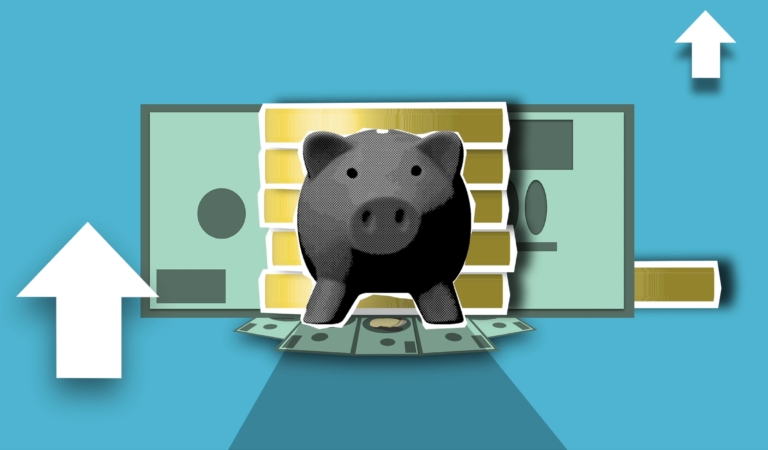Learning how to buy a house can be an exciting yet daunting experience, particularly for first-time buyers. Our guide offers expert tips to simplify the home buying process from beginning to end.
Assess Your Home-Buying Readiness
Consider financial readiness, including stable income, savings for a down payment, and ability to handle ongoing expenses. Evaluate if homeownership suits your lifestyle, considering location, size, and home features.
Be emotionally and mentally prepared for homeownership responsibilities. Evaluating your readiness helps make an informed decision for you and your family. We’ll discuss critical factors for purchasing a home.
Stable Income and Employment
Underwriting guidelines require borrowers to have a stable income. Borrowers must provide income-related documents for the previous two years. Lenders verify the borrower’s employment status for at least 24 months.
Less stable income sources may need extra scrutiny.
Debt-to-Income Ratio (DTI)
DTI is a financial measure mortgage lenders use to assess your loan application. It calculates your monthly debt compared to your gross monthly income. Lenders also calculate your housing expense ratio, or front-end DTI.
Review your DTI before applying for a loan. To qualify for most mortgage options, you’ll need a back-end DTI of 43% or less, although this may vary.
Credit Health
Credit scores determine loan eligibility and interest rates. Improving your credit score leads to better loan options and lower rates. Pay bills on time, maintain low balances, and avoid opening multiple new accounts.
Most lenders require a 620 credit score for most loans. Higher scores provide better loan terms. FHA or VA loans require a 580 median FICO score. Improve credit scores for better mortgage chances.
Timing
Consider personal factors, financial readiness, lifestyle preferences, economic health, and mortgage rates when buying a home. Ideal timing varies, so seek financial expert advice to make an informed decision.
Determine Home Affordability
Before buying a home, it’s crucial to determine how much you can afford to spend. Owning a home involves ongoing expenses such as property taxes and homeowners’ insurance that you need to factor into your budget. Use mortgage calculators to estimate your borrowing limits and monthly payments. By doing so, you can make informed decisions about your home purchase while maintaining your overall financial health.
Build Savings For A Down Payment And Closing Costs
Buying a house is a significant financial decision that demands careful planning and contemplation. Apart from finding a home that aligns with your lifestyle and budget, there are several financial factors to consider, such as the down payment and closing costs. You make a substantial down payment towards a home purchase, which can impact your mortgage options and ability to obtain a loan. Similarly, closing costs can add up quickly and can vary depending on several factors such as your loan type, lender, and location.
Down Payment
When learning how to buy a house, understanding down payments is crucial. A down payment is a significant one-time payment made towards a home purchase. Many lenders require it to reduce the risk of mortgage default. While a 20% down payment is a common misconception, it’s not required. Options for those who can’t afford a large down payment include conventional loans with a minimum of 3% down, FHA loans with at least 3.5% down, and VA and USDA loans allowing 0% down for eligible borrowers.
In the process of buying a house, making a larger down payment can offer benefits such as more mortgage options, lower interest rates, and no need for private mortgage insurance. However, consider other factors when deciding on a down payment. Use our mortgage calculators to help determine affordability and explore options.
Closing Costs
Closing costs are fees you need to pay when you obtain a home loan, and they can vary based on factors such as your loan type, lender, and location. It’s recommended to budget for 3% of the home value to cover these costs. For example, if you’re purchasing a home worth $300,000, you may need to pay $9,000 to cover these costs.
You’ll receive a loan estimate no later than three business days after submitting a loan application with your lender. This document itemizes all the closing costs you’re required to pay and how much you’ll need to pay at closing. Ensure to review the Loan Estimate thoroughly to understand what to expect. To obtain an idea before you apply, you can utilize the Closing Costs Calculator provided by SmartAsset to estimate your closing costs. This can help you budget for your home purchase and make informed decisions about your finances.
Step 4: Determine Which Loan Program Best Suits You
When learning how to buy a house, evaluating which loan program is best suited for your current financial situation is an essential step in the home buying process. In this section, we’ll explore the four most commonly used loan programs to help you make an informed decision.
Conventional Loans
Conventional loans are not backed by the government, but they are underwritten to meet guidelines set by Fannie Mae and Freddie Mac, two government-sponsored enterprises (GSEs) that provide liquidity to the mortgage market. The loan requirements for conventional loans can be stricter than government-backed loans, and typically require a minimum credit score of 620, a debt-to-income ratio of 45% or less, and a down payment of at least 3%.
FHA Loans
FHA loans are backed by the Federal Housing Administration and are designed to help those with low-to-moderate incomes. To qualify for an FHA loan, a credit score of at least 580 and a down payment of no less than 3.5% are required. FHA loans also require mortgage insurance premiums, which can increase the cost of the loan.
VA Loans
VA loans are available to active-duty service members, veterans, and their spouses. These loans are backed by the Department of Veterans Affairs and offer several benefits, including no down payment requirement, no private mortgage insurance requirement, and more flexible credit and income requirements.
USDA Loans
USDA loans are backed by the U.S. Department of Agriculture and are designed for those who are looking to purchase a home in a rural area. These loans offer 100% financing, meaning no down payment is required. USDA loans have income limits and may have stricter property eligibility requirements.
When deciding on a loan type in the process of learning how to buy a house, consider your current financial situation, future plans, and budget. Available loan options include conventional, FHA, VA, and USDA loans, each with unique features, advantages, and requirements. Research and consultation with a mortgage professional are essential to determine the best option for your needs.
Obtain Mortgage Preapproval
A home loan preapproval is an initial assessment by a lender to determine the amount of money they may be willing to lend you for a home purchase. Although it’s not a guarantee, a pre-approval is based on several factors, including your financial situation and credit history.
To get pre-approved, you’ll need to complete a loan application and provide supporting documents such as income, assets, debts, and employment history. The lender will evaluate your information and creditworthiness by performing a credit check.
After pre-approval, you’ll receive a letter outlining the maximum loan amount you may qualify for. This letter is useful when house hunting because it shows sellers that you are a serious buyer who has already taken steps to secure financing. Keep in mind that pre-approval is not the same as final approval, and you’ll still need to complete the full loan application process before receiving funds to purchase a home.
Find a Reliable Real Estate Agent
Finding the best real estate agent for your needs requires time and research, but it’s worth the effort to ensure a successful transaction. To start, ask friends, family, and coworkers for recommendations, and check online reviews and ratings. Once you’ve found potential agents, check their credentials and conduct interviews to get to know them and ask any questions you may have. Consider their experience, specialization, and communication skills, and trust your gut when choosing an agent.
To find the best real estate agent for your needs, start by doing your research, check their credentials, interview potential agents, consider their experience and specialization, look for strong communication skills, and trust your gut. By following these steps, you’ll be well on your way to finding a great agent who will guide you through the process and help you achieve your real estate goals.
Start House Hunting with a Plan
When learning how to buy a house, your real estate agent can assist you in finding properties that fit your budget and criteria during the house hunting journey. To make your search more efficient, consider creating a list of priorities, including factors such as price.
- Square footage
- Home condition
- Public transportation access
- Number of bedrooms
- Outdoor space
- Entertainment options
- School district ranking
- Property value trends
- Real estate taxes
Once you have ranked your priorities from most to least important, share the list with your agent, who can then show you homes that align with your needs. While the process may take longer than expected, don’t get discouraged. With a little patience, you’ll find the perfect home that fits your lifestyle and budget. Remember, you can do much of the house hunting online, so use virtual tours and online resources to help narrow down your choices.
Once you find the right property, it’s time to make an offer. For more detailed information on how to navigate the house hunting process, check out our comprehensive guide to buying a home.
Make an Offer with Your Agent’s Help
When you find the home you want to buy, you’ll need to submit an offer letter in writing. The offer letter includes details about yourself, the price you’re willing to pay, and the closing date you’re proposing. It will also include a deadline for the seller to respond to your offer. Additionally, most offers include an earnest money deposit, which is typically 1-3% of the purchase price.
Your real estate agent can advise you on what’s common in your market. If the seller accepts your offer and the sale goes through, your earnest money deposit will go toward your down payment and closing costs. However, if you back out of the sale, you may lose your deposit.
Your agent will typically write the offer letter for you, but you can do it yourself if you prefer. After submitting the offer, the seller can either accept, reject, or counteroffer. If negotiations go on for a while, your agent can help you manage them. Once you and the seller agree to an offer, you can move on to the appraisal and inspection.
Close on Your New Home
In the final stages of learning how to buy a house, before officially becoming a homeowner, there are a few steps to finalize the sale. Your lender is required to provide a Closing Disclosure at least three business days before closing, summarizing loan details and closing costs. Carefully review the Closing Disclosure and compare it to your Loan Estimate, received no more than three business days after your initial application.
After reviewing the Closing Disclosure, attend the closing meeting with your ID, a copy of your Closing Disclosure, and proof of funds for closing costs. At the meeting, sign a settlement statement listing home sale costs, pay the down payment and closing costs, sign the mortgage note, and sign the mortgage or deed of trust securing the mortgage note.
Once closing is complete, congratulations—you have successfully navigated how to buy a house and are now a homeowner!
The Bottom Line
Learning how to buy a house can be complex and challenging, but with proper guidance and preparation, you can find your dream home. This guide offers expert tips and advice on the entire process, from determining your budget to closing on your new home. By following these steps and collaborating with a trusted real estate agent, you can navigate the real estate world and make a wise investment for you and your family. Begin your home-buying journey today!










